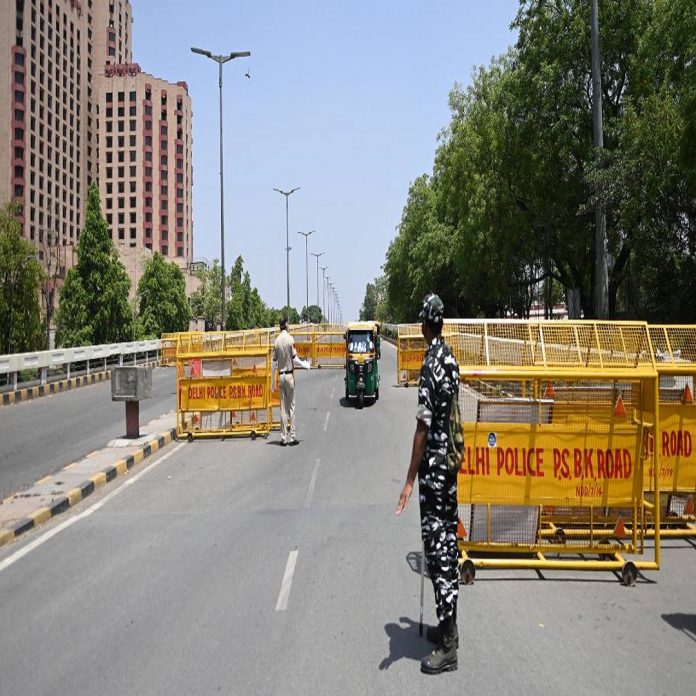The individual movement would be limited to those that have an e-pass (in soft or hard copy). You may apply for an e-pass on the Delhi government’s website, www.delhi.gov.in. There are no restrictions for passengers traveling to and from airports, train stations, or ISBTs.
New Delhi: To fight the spread of the coronavirus, Delhi Chief Minister Arvind Kejriwal declared the national capital under lockdown on Monday. The COVID-19 lockdown started at 10 p.m. on Monday and will end at 5 a.m. on April 26.
The decision was made after Delhi saw the highest regular COVID-19 caseload in the country on Monday, with 25,462 new cases.
Passengers traveling to or from airports, train stations, or ISBTs, on the other hand, would be unrestricted. “Persons coming from going to Airports/Railway stations/ISBTs will be able to travel on the development of a valid ticket,” the Delhi government stated in a notification. Officials in the officers of different countries’ ambassadors, as well as individuals holding any constitutional status, will be exempted upon production of a valid ID card.”
As part of sweeping restrictions to break the chain of infection, Chief Minister Arvind Kejriwal had previously declared a weekend curfew and the closure of malls, gymnasiums, and auditoriums until April 30.
Kejriwal went on to say that the lockdown was appropriate to avoid a larger crisis in Delhi “The government will look after you fully. We made this difficult decision after considering the situation.”
The individual movement will be permitted only with the possession of an e-pass (in soft or hard copy). On the website www.delhi.gov.in, you can apply for an e-pass.
What has been exempted and what will remain closed in Delhi are mentioned below.
ALSO CHECK: Get a tremendous discount with Myntra Coupons and Nurserylive Coupons
– Passengers arriving or departing from airports, train stations, or bus stations will be permitted to fly only if they have a valid fare.
– Public transportation, such as buses and metros, will be required to operate at 50% capacity, while autos and cabs will be limited to two passengers. There will be no standing passengers allowed.
– There shall be no restrictions on the interstate or intrastate movement of vital goods. There will be no need for a separate authorization or e-pass for this.
– Doctors, healthcare employees, critical workers, administrators, journalists, judges, government officials, and diplomats can travel freely with valid identification.
– Students who are taking exams will be permitted to travel if they produce valid identification cards.
– On the development of valid ID cards, people seeking COVID-19 testing or vaccination would be permitted.
– On the development of valid ID cards, doctor’s prescriptions, or medical papers, pregnant women and patients heading for medical services with attendants will be able to travel.
– Religious sites will be allowed to open, but tourists will not be permitted.
– All private offices will revert to a Work From Home setting.
– Only those engaged in critical and emergency services, such as healthcare and emergency services, will be permitted to operate in Delhi government offices and corporations.
– Weddings will be limited to 50 guests and funerals to 20.
– During the curfew, all malls, cinema halls, shopping complexes, swimming pools, restaurants, salons, gyms, and spas will be closed.
– There will be no social, religious, political, entertainment, or sporting events.
– Any national sporting event may be held in a stadium, but spectators are not permitted.
– Food, groceries, fruit, and vegetable stands, dairy and milk stands, meat and fish, animal fodder, pharmaceuticals, opticians, medicines and medical supplies, and newspaper delivery will be available.
– Banks, insurance offices, and ATMs will be open as usual.
– Restaurants will be able to offer and carry food to customers’ homes.
– E-commerce delivery of all necessary products, such as food, pharmaceuticals, and medical equipment, would be permitted.
– Telecommunications, internet providers, cable services, and IT-enabled services are all examples of IT-enabled services.
– Petrol stations, LPG stations, CNG stations, and fuel and gas retail and storage outlets.
– Manufacturing critical commodity units. Non-essential commodity manufacturing units with onsite employees would also be permitted.



